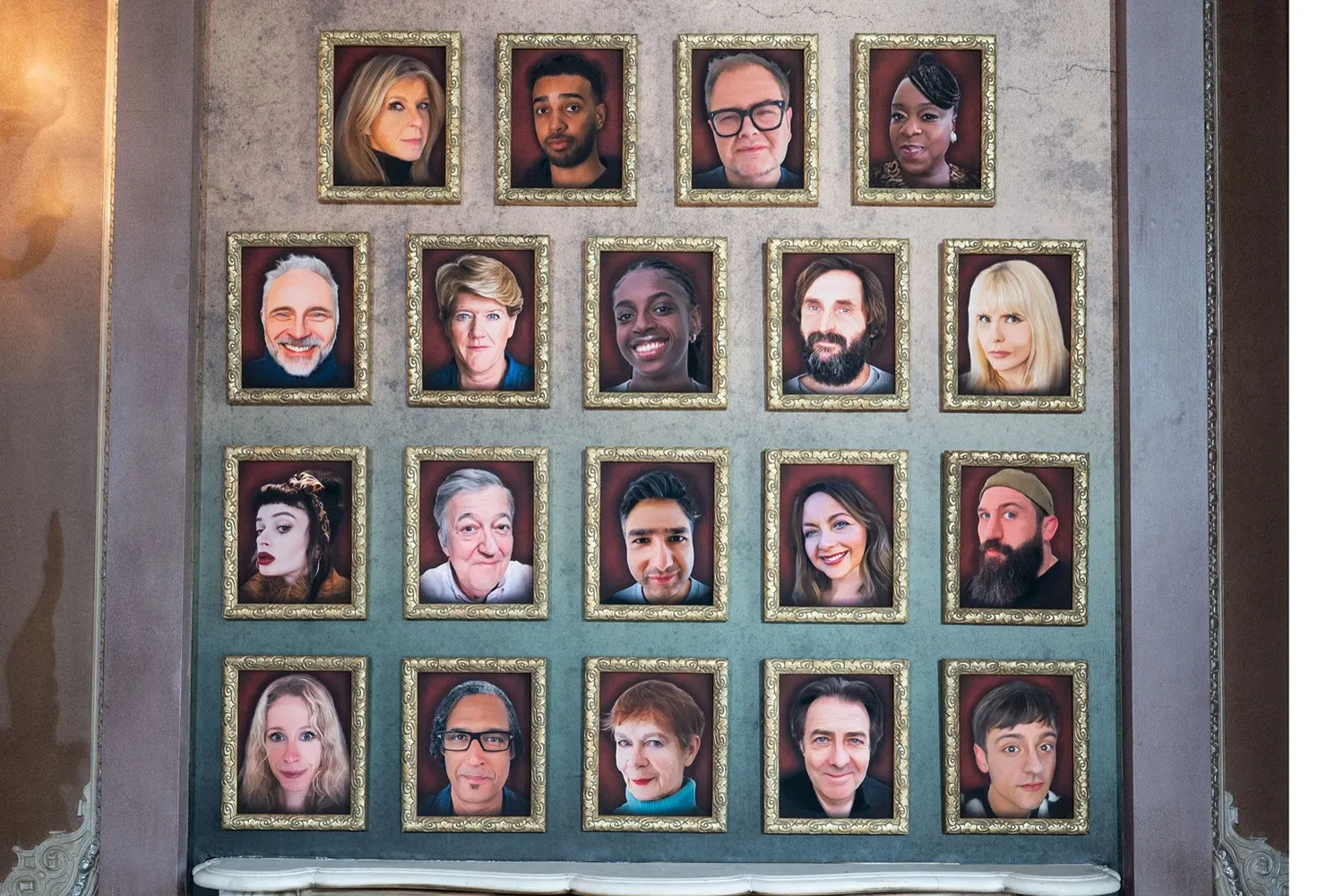Can They use Hypnosis on the Celebrity Traitors to win ?


The new Celebrity Traitors on BBC One is gearing up to be the best yet. Let’s strategize, and most of all, peek behind the curtain of the mind games these celebs might play (yes — even hypnosis might get a look-in).
How does the Traitors show work?
If you haven’t seen the promos yet, here’s the story: the celebrity version of The Traitors is launching on 8 October 2025 on BBC One / iPlayer.
Nineteen well-known names will be dropped (figuratively speaking) into a castle in the Scottish Highlands. There, they’ll be divided secretly into Faithfuls and Traitors. The Faithfuls aim to identify and banish the Traitors; the Traitors aim to sabotage, deceive, and stay undetected — eliminating Faithfuls one by one.
What’s The prize? Up to £100,000 for charity (plus serious bragging rights).
To make matters stricter: contestants have to hand over their phones, no social media, no outside contact. It’s cut off, high-pressure, and sizzling with opportunity.
Who’s in the Celebrity Traitors cast ? — and who might be dangerous?
Stephen Fry — intellectual, eloquent, warm. But in a castle full of suspicion, being too bright might make you a target.
Alan Carr — charm, humour, unpredictable energy. He could be a social glue — or a trickster.
Tom Daley — highly liked, seen as “safe.” But sometimes the least suspected make the best traitors.
Paloma Faith, Celia Imrie, Kate Garraway, Jonathan Ross, Lucy Beaumont, Niko Omilana, Clare Balding, David Olusoga, Joe Wilkinson, Mark Bonnar, Tameka Empson, Ruth Codd, Charlotte Church, Cat Burns, Joe Marler — a heavy, diverse roster.
Because of the variety — comedians, athletes, presenters, historians — the alliances could be wildly unpredictable.
From early betting odds and commentary, Nick Mohammed, Tom Daley, Celia Imrie, and Paloma Faith are often floated as either strong contenders or sneaky Traitors.
Here’s my thoughts looking from the view of a hypnotherapist who thinks about how they could use mind games to win the prize...
Nick Mohammed brings warmth and comedic disarming — ideal cover for someone doing mischief behind the scenes
Celia Imrie has a quiet intelligence; she might fly under the radar until a critical moment
Tom Daley is physically fit and mentally sharp — a good combo for challenges and deception
Paloma Faith has presence, charisma, and theatricality — she might lean into a bold strategy
Mind games in the castle: what to expect
This show thrives on psychological warfare. Here are several tactics the celebrities might lean on to get ahead (and survive):
1. Gaslighting & misdirection
One of the oldest tricks: deny something you obviously did, blame someone else, plant seeds of doubt. If A accuses B loudly, others may hesitate to trust B, even if A is the real threat. “I didn’t say that… did I?” or “You’re misremembering” are gold for sowing confusion.
2. Social alliance & exclusion tactics
In a group, inclusion feels safe and exclusion feels dangerous. A Traitor might deliberately form a “circle” within the group, making others feel left out — then gradually pick off outsiders or get them to vote against each other. Or whisper in ears, form side alliances, and let doubt fester.
3. Feign vulnerability
Pretend to have a weak spot, cry, confess minor “sins,” act tired or overworked. People often protect those who seem vulnerable, so you lull others into trust — then turn the knife.
4. Double agents / recruited converts
The Traitors often have the option to recruit Faithful's into their “camp.” If done subtly, this is devastating. A convert may appear loyal to the Faithful, but is actually u
5. Time pressure & emotional shocks
Design challenges or rounds that force quick decisions with little information. Under stress, people default to primal instincts (fight, flight, trust strangers). Also, throwing in surprising betrayals or twist reveals can scramble strategies.
Hypnosis, persuasion & mental influence — could they use it?
Could elements of persuasion, suggestion, anchoring, and emotional priming be used? Absolutely. It’s not a trick, it's just using things like language to your advantage.
Here’s how those could slip in:
Priming / framing
Before a challenge or vote, you drop words or phrases: “What if someone is hiding behind a mask?” or “Be cautious, don’t trust everything you see.” These work subconsciously.
Mirror & rapport-building
Establish rapport subtly by matching body language, speech tone, laugh patterns. Once someone feels you “get them,” they may be more open to your suggestions or interpretations of events.
Anchoring decisions
You plant an initial idea in someone’s mind ("We should vote for X") so that later when you reframe, shifting to “Y seems worse” feels like a moderate change rather than a huge leap.
Confusion loops & trance states
A quiet voice, soft cadence, repeated phrase (“just think... just listen...”) could lull someone into a more suggestible mindset. Not full hypnosis, but enough to plant doubts or nudges.
Sleep deprivation / stress weakening boundaries
Over multiple days, lack of sleep and constant suspicion weakens mental resistance. Under that pressure, people are more open to influence, misremembering, and being swayed by a charismatic voice.
So while no one is walking around with a pendulum saying “you will betray,” the building blocks of persuasion could absolutely be woven into conversations and strategy.
Possible trajectories & dramatic moments to watch for
A beloved star might be sacrificed early — for dramatic shock value.
A pair of “friends” might turn on each other mid-show, perhaps triggering the more cautious ones.
The converted Faithful might linger as a mole for several rounds, sabotaging major votes.
The Traitors might engineer a “tie vote” moment, forcing a sudden reveal or twist.
Most dramatically: one of the least suspected might end up being the last Traitor — engineered through invisibility rather than boldness.
The Celebrity version adds new stakes: reputation, public persona, and the tug between “truth” and “celebrity brand.” Would someone risk being exposed as manipulative on national TV? Some will. Others might play safe. And the real intrigue: how far will they go to hide the instinct to betray?
Keep an eye on how the contestants talk when they think cameras won’t catch it — offhand lines, side glances, tone shifts. That’s where the real game lies.
You plant an initial idea in someone’s mind ("We should vote for X") so that later when you reframe, shifting to “Y seems worse” feels like a moderate change rather than a huge leap.
Whatever happens it is sure to be entertaining and one of the highlights of the Autumn TV Schedule